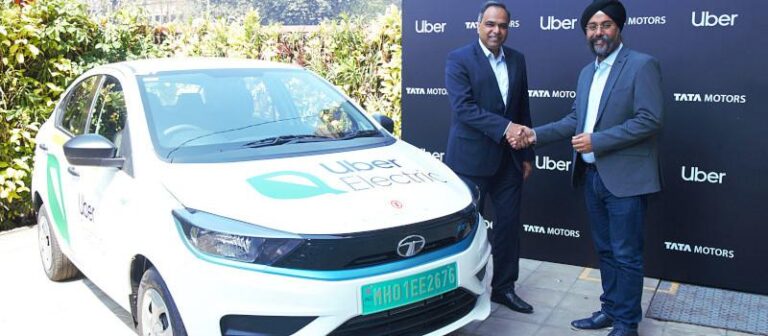Tata Motors has announced its agreement to acquire Italy-based commercial vehicle manufacturer Iveco for $4.4 billion, marking a significant move in the global automotive industry. The deal positions Tata Motors to expand its footprint in Europe and strengthen its presence in the commercial vehicles sector. This acquisition underscores the Indian conglomerate’s strategic ambitions to grow its international portfolio amidst increasing competition and evolving market dynamics.
Tata Motors Expands Global Footprint with Iveco Acquisition
Tata Motors has announced a significant move to broaden its international presence by acquiring Italy-based commercial vehicle manufacturer Iveco for $4.4 billion. This strategic acquisition marks a bold stride in Tata Motors’ global expansion plan, bringing together two automotive giants with complementary strengths. Iveco, known for its strong footprint in Europe, Africa, and Latin America, will provide Tata Motors access to new markets, advanced technology, and a diversified product portfolio, enhancing its competitiveness on the world stage.
The deal is expected to drive several key benefits for Tata Motors, including:
- Expanded global reach: Access to Iveco’s extensive distribution networks worldwide.
- Product synergy: Combining Tata’s robust commercial vehicles with Iveco’s expertise in light, medium, and heavy trucks.
- Technological innovation: Leveraging Iveco’s leadership in alternative fuel and electric commercial vehicles.
- Cost efficiencies: Potential for streamlined operations and improved economies of scale.
| Aspect | Tata Motors | Iveco |
|---|---|---|
| Market Focus | India, Asia | Europe, Latin America, Africa |
| Product Range | Commercial Vehicles, Passenger Cars | Heavy & Medium Trucks, Buses |
| Strength | Affordable, mass-market vehicles | Advanced technology, alternative fuel vehicles |
Strategic Implications for Automotive Industry Competition and Innovation
The acquisition of Italy’s Iveco by Tata Motors is set to reshape the competitive landscape of the global automotive sector. This strategic move not only strengthens Tata’s foothold in Europe but also accelerates its expansion in the commercial vehicle market, particularly in the heavy-duty and specialty vehicle segments where Iveco excels. Industry observers suggest that this consolidation will drive a wave of innovation as both companies leverage their combined R&D capabilities to develop cutting-edge technologies, including electrification, autonomous driving, and connected vehicle platforms.
Key strategic implications include:
- Enhanced global portfolio: Combining Tata’s domestic strength with Iveco’s international presence offers a diversified range of products tailored for different markets.
- Innovation synergy: The merger could fast-track the development of sustainable mobility solutions, aligning with stricter emission regulations and rising customer demand.
- Competitive pressure: The deal may prompt rival automakers to reconsider alliances or acquisitions to keep pace with Tata-Iveco’s growing influence.
| Aspect | Impact |
|---|---|
| Market Reach | Expanded to Europe, Asia, and Latin America |
| R&D Investment | Increased focus on EV & connected technology |
| Competitive Strategy | Stronger positioning against European and Asian rivals |
In sum, Tata Motors’ strategic acquisition signals a new chapter in The evolution of the global commercial vehicle industry, marked by increased scale, innovation, and market diversification. By integrating Iveco’s expertise in heavy-duty and specialty vehicles with its own strengths, Tata Motors is better positioned to compete on a global stage, meet stringent environmental standards, and offer advanced vehicle technologies that appeal to a broad customer base. This acquisition not only enhances Tata’s product lineup but also sets the stage for future collaborations and technological advancements, driving sustainable growth and long-term value creation for stakeholders.
Recommendations for Investors Amidst Tata Motors and Iveco Merger Prospects
Investors should closely monitor the evolving dynamics of the Tata Motors and Iveco merger, as this strategic move is poised to alter the commercial vehicle landscape globally. With the $4.4 billion acquisition, Tata Motors is gaining access to advanced European technology and a broader product portfolio, potentially enhancing its growth trajectory and market diversification. However, stakeholders are advised to remain cautious of integration challenges and regulatory scrutiny that could impact short-term stock volatility.
To navigate this promising yet uncertain phase, here are key considerations for investors:
- Assess Long-Term Growth Potential: Evaluate how the merger can strengthen Tata’s competitive edge across geographies.
- Watch for Synergy Realization: Keep an eye on cost-saving measures and operational efficiencies as the companies integrate.
- Stay Alert on Regulatory Updates: Changes in compliance or antitrust approvals may influence deal timelines and stock performance.
- Diversify Portfolios Prudently: Balance exposure to Tata Motors within a broader investment strategy to mitigate risks.
| Factor | Potential Impact |
|---|---|
| Technology Transfer | Accelerated EV and commercial vehicle innovation |
| Market Expansion | Stronger presence in European and Latin American markets |
| Financial Integration | Short-term costs with long-term savings potential |
| Regulatory Approval | Possible delays impacting stock volatility |
In Conclusion
As Tata Motors moves forward with its $4.4 billion acquisition of Italy’s Iveco, the deal marks a significant milestone in the Indian automaker’s global expansion strategy. By integrating Iveco’s expertise in commercial vehicles and electric mobility, Tata aims to strengthen its foothold in Europe and accelerate its transition toward sustainable transportation. The transaction is expected to close later this year, subject to regulatory approvals, setting the stage for a new phase of growth and innovation in the competitive automotive landscape.




